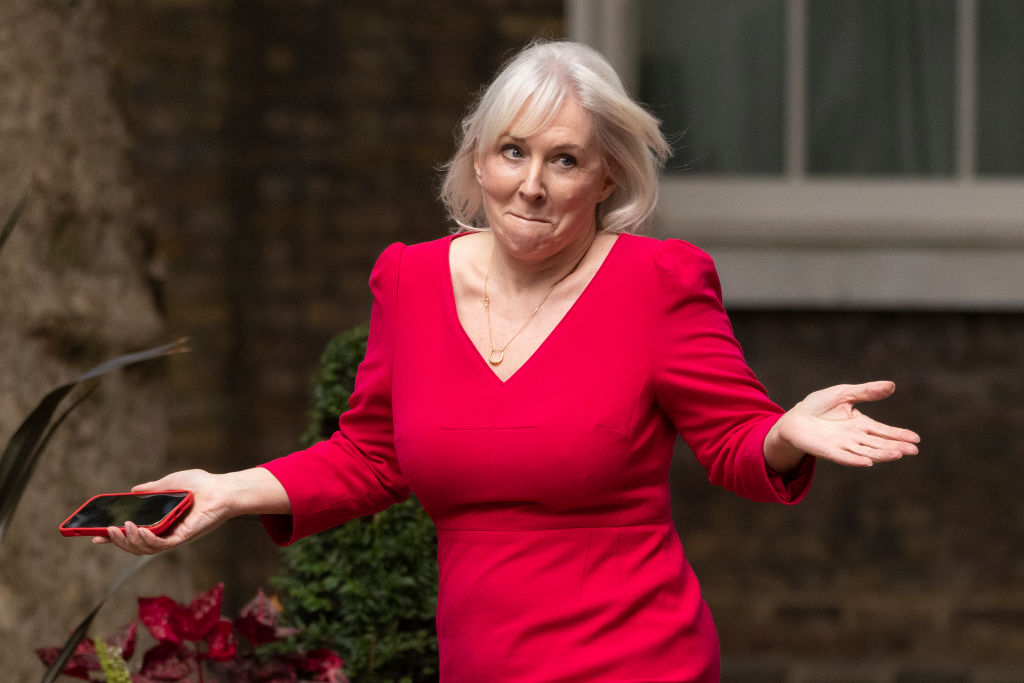Nadine Dorries plays hard ball tactics with the big freeze of the BBC licence

When Culture Secretary Nadine Dorries tweeted over the weekend that the next announcement about the BBC licence fee would be the last, social media erupted and a ticking time bomb was set off.
“The days of the elderly being threatened with prison sentences and bailiffs knocking on doors, are over. Time now to discuss and debate new ways of funding, supporting and selling great British content”, Dorries told her 110k Twitter following, sparking frenzy and a well-timed media diversion from the lingering talk of ‘party gate’.
Her comments support Whitehall whispers that the government is expected to freeze the £159 fee for two years, with its existence guaranteed until at least 31 December 2027 under the broadcaster’s royal charter.
This was confirmed yesterday evening and is a decision that the BBC have already called “disappointing”.
But what her tweets also did was set a deadline for an issue that has been on the government’s radar for decades.
The fee currently makes up almost three-quarters of the broadcaster’s funding, including all BBC services, like iPlayer, TV, websites and radio.
The broadcaster’s income from TV licences has declined about eight per cent in real terms over the past four years to £3.75bn, yet the Beeb continues to churn out new content and attract global audiences.
Whilst the timing of the announcement feels opportunistic, Ed Vaizey, former Culture Secretary, told City A.M. yesterday that Dorries “inherited a deadline” from the charter, and the ever changing landscape of TV and radio makes the debate a “perfectly legitimate” one.
He said the intense reaction, from members of the public and TV stars alike, is rooted in an affinity to the BBC. Vaizey added: “It is very difficult to have a reasonable debate about how to organise the BBC in the same way it is difficult to have a reasonable debate about the NHS.”
He commented that discussions were often marred by talks of the Conservative “agenda”, but did state that alternatives to a licence fee were “complicated” to grapple with.
For many, the beauty of the current system is that it is independent from the government. But, again, this is something that Johnson’s government has repeatedly tried to undermine with attempts to appoint allies to top positions at Ofcom in recent months.
Other options beyond the current system include bolting a BBC licence fee onto council tax, like the Germans do. Their tax is a blanket contribution, which is paid by all households, regardless of equipment or television/radio usage.
Yet, as we all know, this is unlikely to sit well for Brits who are already feeling the pinch of rising prices and the ramifications of inflation.
Another model that has also consistently been floated is a subscription, which would put the BBC in parallel with the likes of Netflix and Amazon Prime.
Nonetheless, this unsurprisingly has its critics.
Some argue a subscription would cause friction between the fundamental mission of the BBC, which, in its own words, promises “to act in the public interest, serving all audiences through the provision of impartial, high-quality and distinctive output and services which inform, educate and entertain”.
Claire Enders, founder and analyst at Enders Analysis, pointed to the technical complexities of a subscription system, and repeated an old adage that whilst the licence fee wasn’t perfect, it was “the least worst option” for the BBC.
Looking at the institution itself, she said the BBC “has an authority and ethos that the world knows and understands”, and believes it is paradoxical that the Conservatives are looking to “undermine” it.
Enders told City A.M.: “Taking away the licence fee is tantamount to destroying the BBC.”
As it stands, the future of the BBC remains up in the air. Whilst the broadcaster warned yesterday that the freeze will “necessitate tougher choices”, it is difficult to see how a BBC would function without any fee at all in coming years.
What we do know is that Dorries has set off a time bomb and we’re all waiting to see the next big explosion.